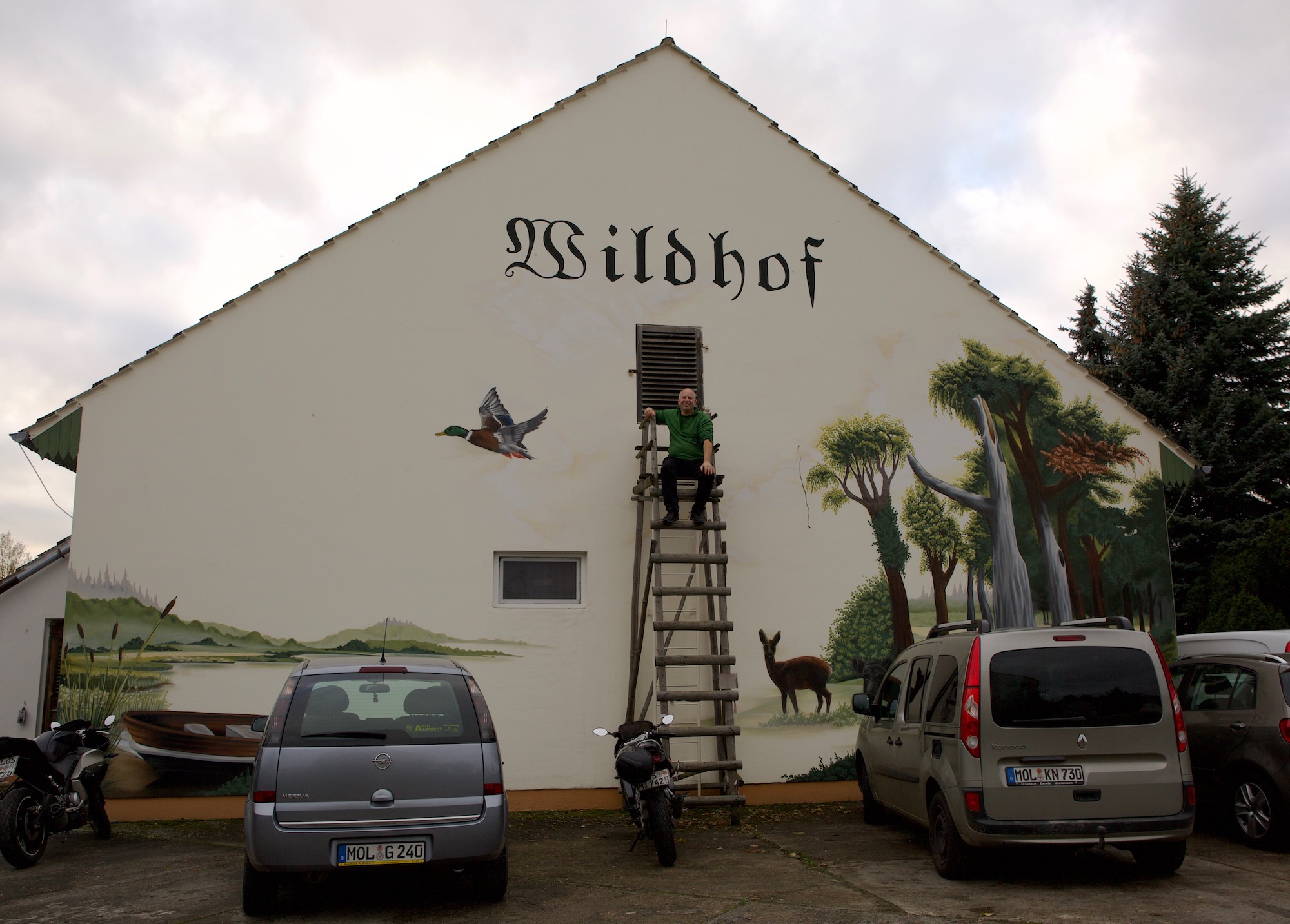This article is part of our written series that introduces and explores small businesses that align with the FEC mission of encouraging local food makers and producers. This series hopes to serve as a resource and as inspiration for other industry folk in sharing the stories of local food entrepreneurs in the Brandenburg area.
by Anna Küfner
It is a sunny, crisp fall afternoon when we arrive in Müncheberg, about an hour East from Berlin. We find ourselves on the edge of Märkische Schweiz, a rather hilly part of Brandenburg towards the Polish border. Michael Bjarsch, owner of Wildhof Müncheberg, picks us up at the station and brings us to his premises where he is currently preparing a big autumnal feast for the next day. Supported by his family, he is cooking up a storm of game meat for 500 to 1000 guests. Though his preparations are urgent, Micha still takes the time to show us around his Wildhof, explaining what hunting means to him, its importance for the environment and its value for consumers.
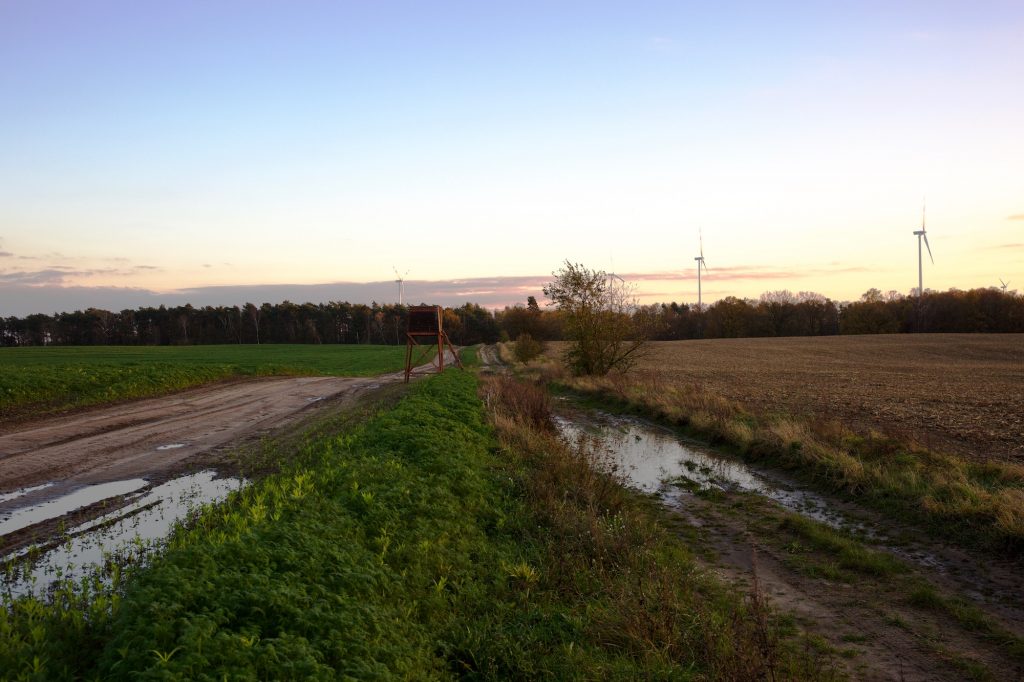
Michael Bjarsch used to be a head chef at Hotel Adlon and Käfer Munich; “Hunting”, he says, “is actually my hobby”. An important hobby that Michael turned into a successful but also challenging business. Michael bought the Wildhof seven years ago in 2010, sensing its potential. He aims to keep not only the operations but also the culture of hunting active for this region of Germany. You can feel how important it is to him to give people an understanding for the actual meaning of the hunt and why it needs to be pursued in the future. As an expert it’s clear that it frustrates Micha when his craft is simplified and huntsmen are simply viewed as a murderers: “Hunters are very special people. Hunting needs deep concentration, patience and a lot of knowledge. Without it you will rather sooner than later give up on it.” Game hunters also have to follow strict rules of what, when and where to hunt. Nina Kettler joins us, not only a good friend but also a hunter from the region. We’re happily surprised to meet a female hunter, seemingly a rarity in this field. When I ask her how she discovered hunting she immediately draws a line between the hunt and her passion for nature: “I always wanted to be close to nature. I discovered the so-called wilderness scene where I did a 4-year long, pretty intense training to live in nature. Only afterwards did I pursue getting my hunting licence.”
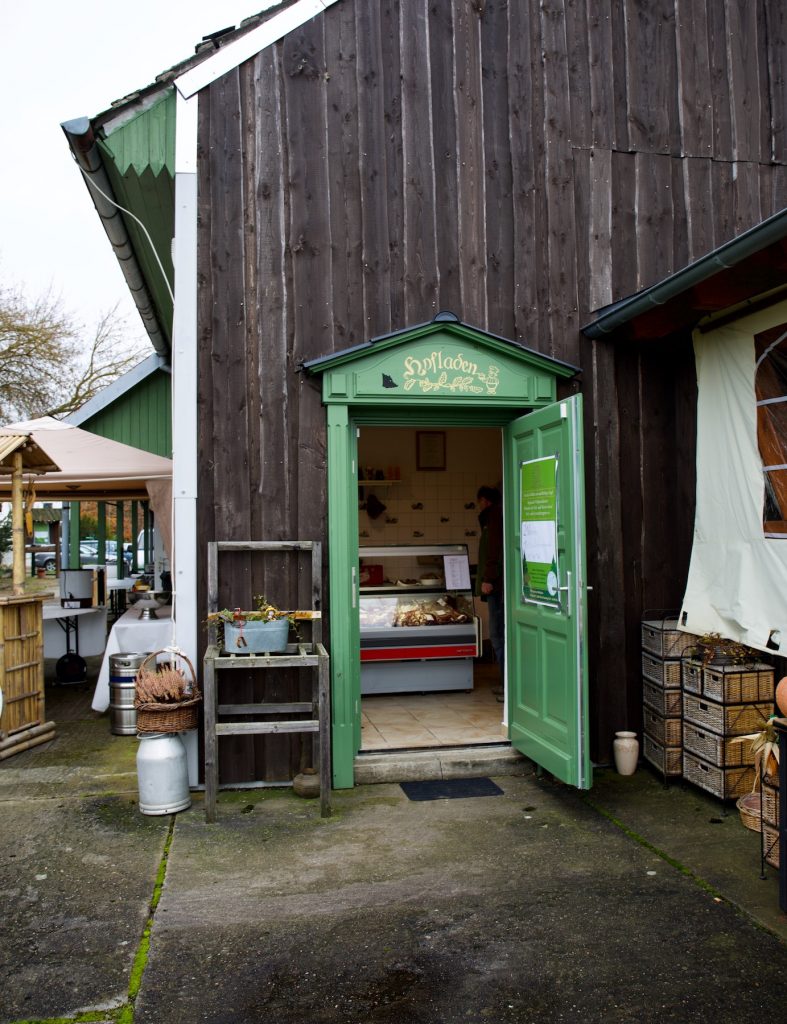
A special connection to nature
Talking to Micha and Nina one thing becomes very obvious: only once in a blue moon you will meet people who are as sensitive towards nature as these two. A good hunter can read the environment through their senses. The weather, the moon, birds, every sound, every plant, the sunset. Being asked about their hunting careers, Micha and Nina barely speak about shooting and killing animals. We speak about patience, respect and about the most natural way of sourcing meat. “There is so much knowledge that you need to gain to become a hunter” the two hunters agree.
To get obtain a hunting licence in Germany, one must study six different disciplines: wild animal biology, nature conservation, weaponry, hunting activity, game diseases and law. Plus it demands bulletproof concentration and a fine-tuned sense for the elements. To merely go out hunting does not equal success. “Sometimes you spend hours waiting and you return home empty handed” Nina reports, “it is something you cannot control.” Michael nods in agreement: “The animals are gifts of nature. That’s how I see it. We have to work with what we are given.” Nina goes out hunting about three times a week, which means a minimum of four cold hours of complete concentration in total silence. It becomes clear that one does not choose this profession for the money but for the conviction of tradition and dedication to skill it requires. “Actually having company makes the entire operation more relaxed!” Nina exclaims, and both of them invite us to join a hunting trip when we have time.
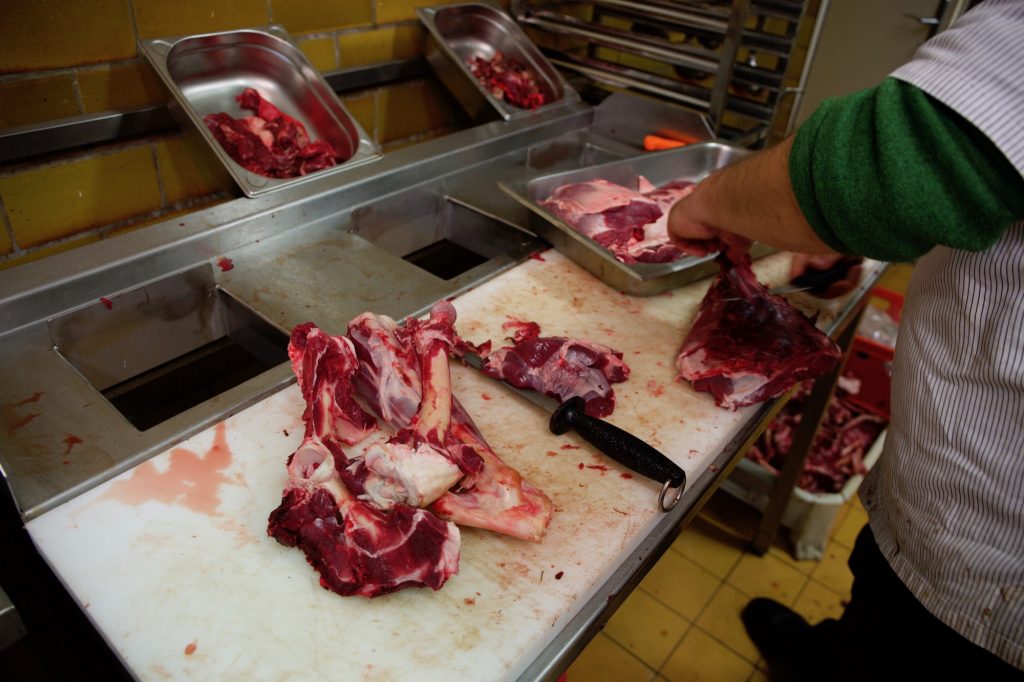
Quality control
Michael is not only a hunter, he is also fully processes the animals he kills and those that other hunters from the region bring to him: “Every animal goes through my hands”, he tells us, “I want to guarantee the best quality of the meat by handling and aging it correctly. Game meat is the most natural, the most “bio” you can get. And of course it is very, very tasty.” In this area of Brandenburg, hunters mostly hunt wild boar and deer. There is regulation game hygiene to handle the dead animal correctly, to preserve its beautiful taste and the quality of the physical meat. After the animal is shot, the hunter waits approximately ten minutes before he goes looking for it. Sometimes, a wounded animal will try to flee and the hunter has to read its tracks to find it. It will then be gutted on site and transported to the Wildhof where it is skinned and dry-aged before it gets sold to its customers, every cut from nose to tail, to both private and business clients. Prices of game meat are pretty stable – bigger challenges are diseases that are mostly uncontrollable, like the African swine flu that is currently invading from Belarus via Poland to Eastern Brandenburg. It is not dangerous for humans but the local wild boar population can be heavily effected as there is no vaccine against it. Hunters are requested to shoot wild boar as a measure of precaution: the current population is too big so the epidemic could easily spread. In case it spreads extensive damage especially for farmers would be a consequence as it can also infect regular pigs. Once there is a contaminated animal in a breed all animals would have to be killed by law. That is why everyone stands at attention right now.
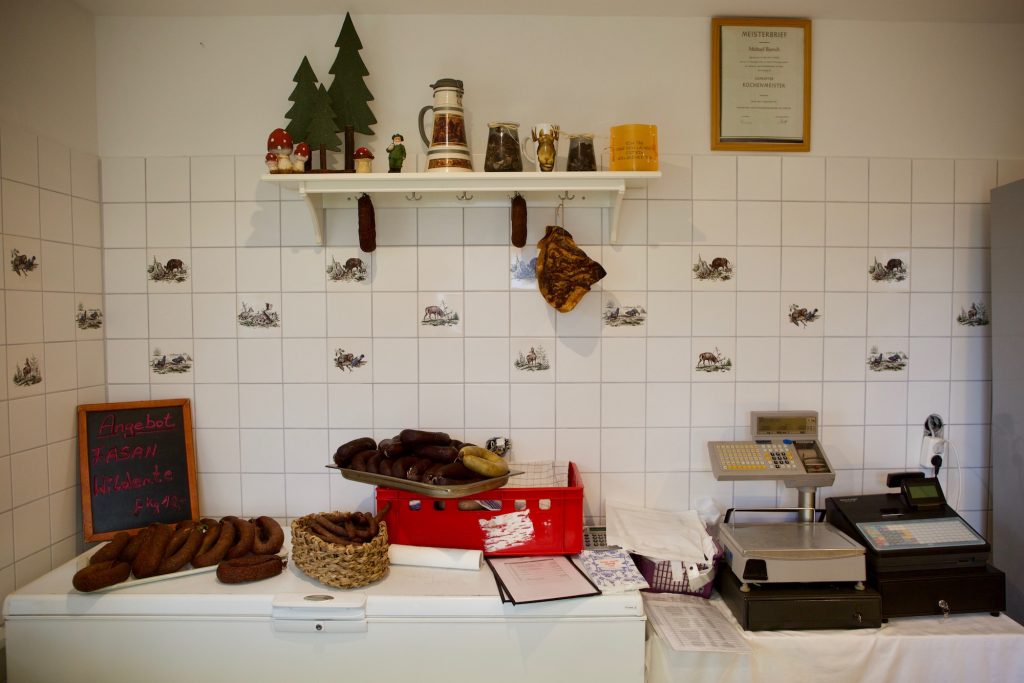
Sitting by the fire that night, Michael presents us a variety of his delicious products: wild boar sausages that we grill over the open fire, different sausages and cured meats all made on sight. “Tonight would be far too bright to go out” Micha tells us, looking up to the full moon shining down on us like a spotlight. Once again we are confronted with the most important rule of all: you have to be nature’s best friend before you even think of hunting.
All of Micha’s game meats are available at his small shop in Müncheberg. Bigger quantities, special requests and for restaurant accounts, please contact Michael Bjarsch directly at 033432 99 99 55 // 0170 525 81 03, http://www.wildhof-muencheberg.de, info@kochen-mit-bjarsch.de.
